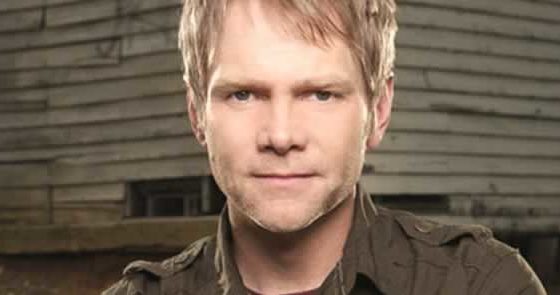I stared at the probing question on one of my favorite online message boards. Several years ago I would have answered, absolutely! My husband Dave and I laughed, we held hands while walking through the mall — we cherished each other.
Slowly though, something happened to Dave. He talked less. He began to forget people’s names and conversations we had — a few times he even got lost in familiar places. What was happening?
The Internet question seemed to bounce off blank walls in my mind, my fingers paralyzed to answer: “Is your spouse your best friend?”
After going to thirteen doctors in three years, Dave was eventually diagnosed with chronic Lyme disease. He had been undiagnosed for fifteen years. Dave had dizziness, mental confusion, fatigue, chemical sensitivities — and finally had to leave his position as children’s pastor at our church.
Our relationship was changing. Dave couldn’t think straight, his memory failed him, he couldn’t retrieve the right words, he couldn’t concentrate — sometimes he was too fatigued for days on end to have even a simple conversation.
One evening as he approached me in the livingroom, holding to the wall to steady himself, he said, “It was good of you to come. Where are you staying?” His mind had gone back to our dating days. I spent the next hour trying to explain that we’re married, that we have two beautiful children — that there are no more meetings for him to go to. “When did you get glasses?” he wanted to know. None of my words made sense to him. Had I lost my best friend?
As I cried out to God I remember asking, “God, what are your intentions towards Dave?” I wanted Dave to be healed quickly or allowed to die, but not made to linger on as he was. God distinctly asked me, “What are YOUR intentions towards Dave? What will you do if nothing changes?” And I realized that my intention is to love him. That’s the commitment I made the day we got married. I said in sickness and in health. God was holding me to my word; this was in sickness.
Although I had known it before, the truth suddenly stared me in the face. Love isn’t what we get; it’s what we do. It’s our gift to each other, it’s loving no matter what the return is.
God actually gives us a great gift in suffering, because that is the closest we can come to agape-loving God, loving God without receiving the blessing we long for (although God has blessed us in so many ways even in the midst of suffering). This is the kind of love God gives us, the kind of love that draws us to Him.
So, how can we learn to love without relying on what we receive? 1 Corinthians 13:4-7 tells us what love is:
Love is patient, love is kind. It does not envy, it does not boast, it is not proud. It is not rude, it is not self-seeking, it is not easily angered, it keeps no record of wrongs. Love does not delight in evil but rejoices with the truth. It always protects, always trusts, always hopes, always perseveres.
For the next year I meditated on part of these verses every month. In January I prayed through “love is patient.” Am I patient with my husband when he can’t speak clearly, when he walks slowly? Am I calm with my kids if it takes time for them to learn how to take care of their rooms? In February I prayed through “love is kind.” Do I use kind words, a kind tone, kind actions with my husband and my children? As I continued through the year, God slowly revealed to me how much I didn’t know about love — and how I need to rely on Him if I am going to be a person who loves my husband, my children, and others.
Marriage, from an outside perspective, seems like it should be “natural” but in actuality it takes work. The only thing natural about marriage is that it reveals our nature! Marriage exposes how self-centered we are. It taxes our communication abilities. We tend to think and make assumptions instead of speaking our intent and our desires to each other. Dave and I used to joke, “I thought about telling you, I guess you didn’t hear me!” Gradually, as we submit to God, God’s spirit transforms our minds and helps us change our actions.
Loving my husband has become an honor and a joy to me. I’ve learned to value a person not for what they can do for me, but because God has placed a high value on them. He bought Dave with the blood of Christ, and He has placed His Holy Spirit in Dave. No one can add to this value! And yet, God honors us with the pleasure of being able to glorify Him in our love for one another.
Dave is starting to remember things again, though some memories are still gone. “Is your spouse your best friend?” is an intriguing question. But perhaps the one we should be asking is “Am I my spouse’s best friend?” Not “Am I his buddy?” but “Am I the one who looks out for him, honors him, respects him — loves him with all I am?”
Above all, pray for your spouse. And when you pray, don’t look for God to change him — look for God to change you. God can and will transform you, if you are willing.
Copyright © 2005 by Merry Marinello, used with permission
Merry and Dave have been married for 15 years, and have battled Dave’s Lyme disease for the last five of those years. She is a freelance writer and stay-at-home mom to their two children. Through their website, Hope is My Anchor, they encourage others who face physical and spiritual struggles that there is a “better hope” than our life circumstances, one “by which we draw near to God.” (Hebrews 7:19) Read more at hopeismyanchor.com
[schemaapprating]










